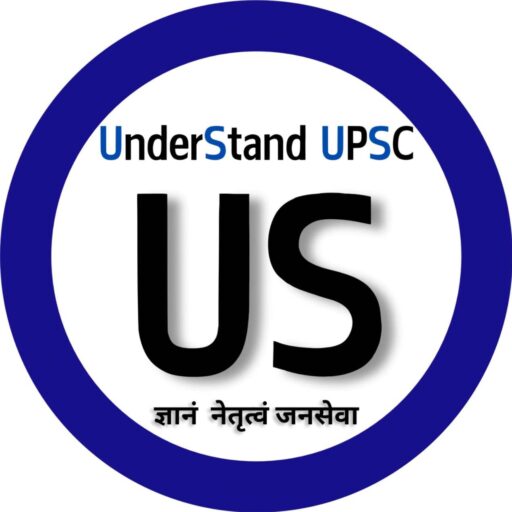
Staying on top of UPSC current affairs preparation every single day can feel overwhelming — juggling newspapers, online updates, and handwritten notes. But this race isn’t about speed; it’s about sustained consistency. Here’s a practical, doable plan to make UPSC current affairs preparation part of your daily routine — without burnouts or information overload.
1. Why Consistency Matters in UPSC Current Affairs Preparation
- Breadth and Depth: UPSC exams test both overview of news and detailed understanding of national/international issues.
- Linking Static Syllabus: Daily current affairs become relevant only when you connect them with geography, polity, economy, or environment — a core part of mains answer writing.
- Better Retention: Repeated reading means you recall facts, reports, and stats easily during prelims and mains.
- Interview Readiness: Staying updated daily gives you confidence in personal interviews — a key strength of top mentors like Satyam Jain Sir at Understand UPSC.
Consistent UPSC current affairs preparation builds a daily habit rather than weekend cramming. That’s what toppers swear by.
2. Build Your Daily Routine for UPSC Current Affairs Preparation
| Time | Task | Details |
| 6:00–7:00 AM | Morning Paper Reading | Follow a fixed newspaper (e.g. The Hindu / Indian Express). Take 2–3 bullet points per article. |
| Noon | Midday Revision | Use an app or PDF summary for 10–15 mins to review morning notes. |
| Evening | Online News Review | Cover Govt. releases (PIB), international briefs, economy, and editorials. |
| Night | Self-Testing | Write 3 MCQs or short para on a key topic. Link with static subjects. |
| Weekend | Weekly Consolidation | Compile weekly files, revise, and update monthly current affairs PDF. |
This schedule makes UPSC current affairs preparation habitual — not a chore.
3. Use Trusted Sources – Not Too Many
For effective UPSC current affairs preparation, balance is key:
- 📰 Primary: The Hindu / Indian Express (daily newspapers).
- You can also refer to our DCA (Daily Current Affairs) which is available on our website and application for free.
- 📢 Official: Press releases from Ministry websites or PIB.
- 🧠 Analysis: One editorial per day – focus on core ideas not fluff.
- 🌐 Digital Portals: Use a single reliable daily source like Understand UPSC’s current affairs section, not multiple overlapping portals that waste time.
Stick to this mix—UPSC current affairs preparation is about effective filtering, not hoarding news.
4. Simple Note-Making Techniques
For consistent UPSC current affairs preparation, effective notes are essential:
- Daily One-Page File: Each day, summarize into 3–4 bullet points:
- What happened? (e.g. Pratibha Setu initiative launched by UPSC)
- Why does it matter? (e.g. helps aspirants who missed final cut)
- Static link? (e.g. connects to Governance – Administrative reforms)
- Tag with Topics: Mark each note under categories like Economy, IR, Polity, Environment.
- Color Code: Use yellow for national, blue for international, green for environment/economy.
- Weekend Compilation: Transfer daily notes into a weekly file. Use this for monthly revision.
These no-fuss notes make UPSC current affairs preparation structured and usable.
5. Leverage Weekly & Monthly Revision
- Weekend Recap: Revise weekly notes and add missed links to static subjects.
- Monthly PDF: Convert weekly files into a consolidated monthly PDF — great for revision just before exams.
- Teach Someone: Explain a current affair topic to a study-buddy. Teaching is powerful.
This ensures that UPSC current affairs preparation compounds and stays with you long-term.
6. Use Digital Tools Wisely
- Calendar Alerts: Reminders for daily reading. Don’t skip.
- Telegram Channels: Follow invitation-only Understand UPSC channel or group led by Satyam Jain Sir for curated daily updates.
- Quiz Apps: Apps like “UPSC daily quiz” reinforce knowledge.
- Spaced Repetition Tools: Apps like Anki to save key facts and revise after 1 day, 1 week, 1 month.
These support your UPSC current affairs preparation—not distract from it.
7. Avoid These Common Pitfalls
- 🚫 Too Many Sources/newspapers/magazines: Stick to curated, high-quality content.
- 🚫 No Links to Static Subjects: News without context isn’t useful in UPSC answers.
- 🚫 One-Day Focus Only: Daily effort + weekly/monthly review is vital.
- 🚫 No Self-Testing: Reading only won’t help in prelims MCQs or mains answers.
Understanding these pitfalls early helps improve your UPSC current affairs preparation.
8. How Understand UPSC Supports You
At Understand UPSC, led by Satyam Jain Sir and a team of mentors, daily current affairs are crafted to follow this very system:
- Bullet-style summaries
- Topic tags (Polity, Economy, etc.)
- MCQs and short answer prompts
- Daily Current Affairs PDF
This builds consistent UPSC current affairs preparation into your schedule — clean, comprehensive, and coached.
9. Keeping Motivation Alive
Consistency only works when you’re motivated. Try:
- 📅 Calendar Visualization: Mark each day you complete your routine.
- 🎯 Goal Settings: Aim for 80%+ retention in monthly review.
- 👥 Group Tracking: Study buddies or mentorship clubs (like at Understand UPSC) to keep energy up.
- 💭 Toppers’ Wisdom: Satyam Jain Sir often reminds: “Daily actions, not big leaps, win UPSC.”
10. Monthly Review & Adaptive Strategy
At the end of each month:
- Review your monthly PDF and quiz yourself.
- Identify gaps — e.g., IR weak, Economy weak.
- Adapt next month’s focus: add more depth where needed.
This iterative cycle refines your UPSC current affairs preparation as the exam nears.
11. Final Thoughts: It’s a Habit, Not a Race
- QUALITY over quantity: meaning matters more than volume.
- Connect daily news to syllabus — that’s real UPSC current affairs preparation.
- Follow structure, stay consistent, use tools smartly.
With a simple, steady system, daily effort adds up. Coupled with mentors like Satyam Jain Sir and resources from Understand UPSC, you can stay ahead in UPSC current affairs preparation and walk into Prelims, Mains, and Interview with confidence.
🔖 Summary Checklist
- Fixed daily reading + midday & night reviews
- One-page daily notes + weekly consolidation
- Tagging by subject + color-coding
- Quiz + short answer practice
- Monthly PDF revision
- Tools: reminders + Telegram updates
- Avoid multiple sources, build links
- Motivation: tracking + peer group
- Adaptive monthly strategy
By following this routine, your UPSC current affairs preparation becomes disciplined and purposeful — exactly what toppers and experts, including those at Understand UPSC like Satyam Jain Sir, advocate. Ready to transform your daily current affairs study? Let’s get started today!
Read Also:-
- Top Answer Writing Mistakes That UPSC Aspirants Must Avoid
- Ultimate UPSC Answer Writing Guide: Proven Strategies to Ace Mains
- Ultimate UPSC GS1 Strategy for Mains: Syllabus‑Wise Tips and Value Addition
- UnderStanding Key Words in UPSC Mains Questions: A Complete Guide
- UPSC Prelims D-Day: Strategies to Maximize Performance
- Best UPSC Optional Subjects: How to Select Yours Wisely
- Top 10 Myths of UPSC Preparation – Debunked
- How to Prepare for UPSC CSAT Reading Comprehension?
- Science and Technology For UPSC Prelims 2025: Important Topics, Sources, Trends and Tips
- Current Affairs Topics That You Cannot Miss for Prelims 2025
- Last 50 Days Strategy for UPSC Prelims 2025
- How to Read NCERT Books for UPSC Exam?
- Modern History for UPSC Prelims 2025: Important Topics, Sources, Trends and Tips
- International Relations for UPSC Prelims 2025: Important Topics, Sources, Trends and Tips
- Ancient and Medieval History for UPSC Prelims 2025: Important Topics, Sources, Trends and Tips
- Environment for UPSC Prelims 2025: Important Topics, Sources, Trends and Tips
- Geography for UPSC Prelims 2025: Important Topics, Sources, Trends and Tips
- Economy for UPSC Prelims 2025: Important Topics, Sources, Trends and Tips
- How to do Mock Test Analysis by Self for UPSC Prelims?
- Polity for UPSC Prelims 2025: Important Topics, Sources, Trends and Tips
- How to Analyse PYQs for UPSC Prelims 2025: A Complete Guide
- How to Handle Stress During UPSC Preparation?
- How to Prepare for UPSC by Self-Study?
- Top 5 Mistakes to Avoid in UPSC Preparation
- 8 Tips to Prepare Current Affairs for UPSC 2025
- How to Prepare Map-based Questions for UPSC Prelims 2025
- How to Prepare CSAT for UPSC Prelims 2025?
- The Most Important Topics For UPSC Prelims 2025
- Clear UPSC Prelims in Your First Attempt: A Step-by-Step Guide




